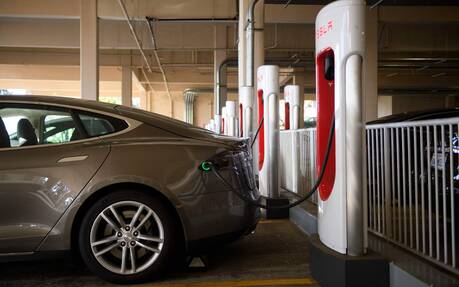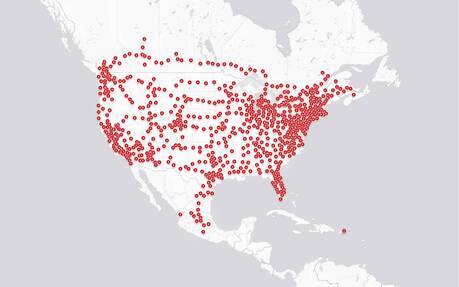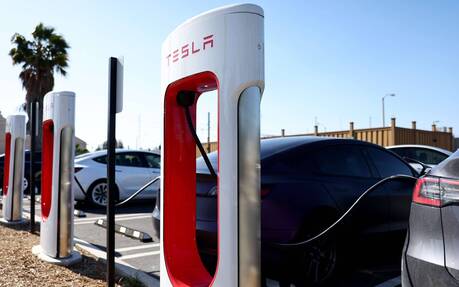Study: Reliability, Satisfaction with Tesla Superchargers Easily Trump Competition
Over the past few weeks, a handful of automakers have made announcements to provide their customers with access to Tesla’s acclaimed Superchargers. Others will inevitably follow soon.
That’s not a surprise at all, especially upon reading the latest E-Vision Intelligence Report by J.D. Power, which shows Supercharger reliability and user satisfaction are much higher than competitors.
- Also: Consumer Reports Says Most Reliable EVs Come From Tesla, Nissan
- Also: Tesla’s Superchargers to Open Up to Rivian R1T, R1S
Through the first quarter of this year, 21.6 percent of EV drivers visiting non-Tesla public charging stations were unable to charge their vehicle. Among Tesla drivers using the Supercharger network, that number falls to just 3.9 percent.

Consequently, Tesla earns significantly higher customer satisfaction scores than rival EV manufacturers when it comes to using public charging networks, J.D. Power notes. Overall satisfaction with DC fast charging (Level 3) among Tesla vehicle owners is 734 (on a 1,000-point scale), while General Motors is 586 and Ford is 544. The average for all other manufacturers is 558.
Keep in mind the study was conducted in the U.S., where fast charger reliability is often criticized and tends to be worse than in Canada.
By contrast, Tesla’s network has proven to work extremely well across the continent. There are currently more than 1,500 Superchargers in Canada and about 19,500 south of the border.

Issues with public charging infrastructure remain some of the top consumer barriers to EV adoption, as highlighted by another J.D. Power survey published last week. That’s why Ford, General Motors, Rivian, Volvo and Polestar will offer an adapter to plug into Superchargers starting next year. Then, in 2025, they will incorporate Tesla’s connector (known as the North American Charging Standard or NACS) into the design of their future EVs, eliminating the need for an adapter.
Stellantis, Hyundai and Volkswagen could all follow suit shortly—or at least they’re thinking about it. Meanwhile, SAE International (formerly the Society of Automotive Engineers or SAE) has said it will support the standardization of the NACS connector by developing manufacturing, performance and reliability standards.
"If the Tesla user experience can be replicated for the non-Tesla EV users, then adoption of NACS by non-Tesla manufacturers could improve the overall charging experience and reliability," said Elizabeth Krear, vice president for EV practice at J.D. Power.
